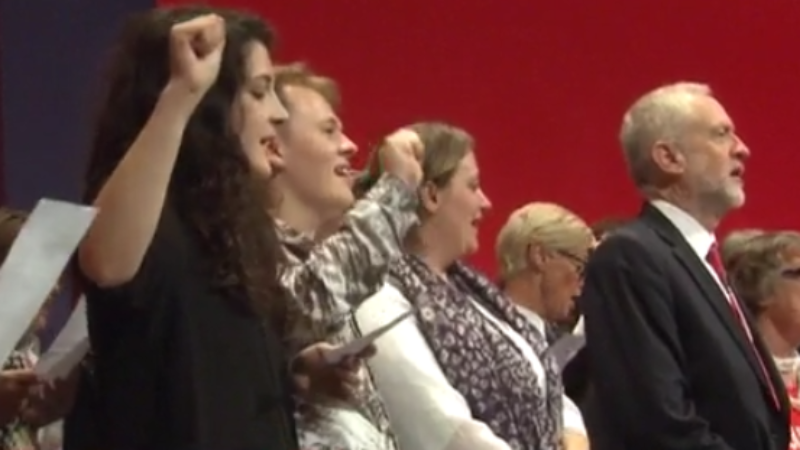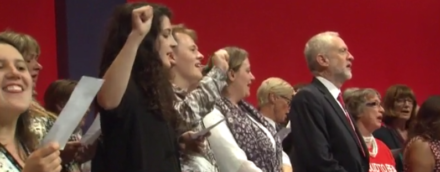

Jeremy Corbyn is an exemplary and vastly underrated political communicator. And not just in a ‘doing things differently’, new politics kind of way, either. He is excellent in the more traditional, ‘machine politics’ sense of being a good communicator.
He knows exactly who he wants to appeal to, what they want to hear and how to speak to them. He does not need focus groups, polling, or a carefully crafted speech to achieve it – it comes naturally to him. It’s obvious it does, which is why authenticity has become such a big part of his appeal.
The question of his electability is not about whether he can appeal to people: he can. It’s about whether he has misjudged how many people he appeals to there are in the country.
It is not as surprising as we might think, then, that Corbyn now appears to be attempting to win over those who do not already agree with him.
When the first elements of his conference speech were trailed to the media on Tuesday, it seemed like this summer’s leadership contest had only served to make him hunker down more in reaching out only to his supporters. The big announcements were that he wanted to make policies from the leadership campaign the basis of Labour’s next manifesto, putting the focus on a National Education Service and a strident pro-immigration stance.
When the party political broadcast was pushed out, he appeared even more entrenched in his comfort zone: the final line was about how Labour care more than the Tories about the NHS. The health service is Labour’s comfort zone issue; it is what leaders use to speak to activists, not swing voters.
However, his conference speech showed the first signs that post-challenge Corbyn might start to look outward. While it was no great speech – it lacked a defining theme, or any obvious soundbites – it did at least show that the Labour leader knows he needs to convince people outside the conference hall, not just please the people in it.
He addressed one section directly to businesses, offering to protect those who pay their taxes from being undercut by one who don’t, and arguing that taxes are simply the price companies pay for a more skilled workforce. Another section saw him condemn “patronising or lecturing” Leave voters. “We have to hear their concerns… about immigration”, he added – a line few will have expected.
There are also signs that the Labour leader might be ready to adopt a more collegiate approach with his MPs. Len McCluskey has suggested that a deal is close on Shadow Cabinet elections, while Corbyn himself has hinted at a free vote on Heathrow expansion.
Why, after an election in which he increased his number of votes by 60,000, is Corbyn displaying a softer side? There are certainly those in his inner circle who argue that he has earned a renewed mandate not just for his leadership and policies, but for going ahead with wide-ranging reform of the party.
The problem is that this week did not go entirely to plan for Corbyn. It brought a reminder that even outside of Westminster, he will not win every internal battle. The party reforms, voted for by conference, which changed the political make-up of the National Executive Committee – devolving selections for Scotland and Wales away from the central party – mean that even with a majority support from members, he can not get his own way every time.
Too much of his first year as leader was spent fighting daily fires – and too many of them were self-afflicted. There was no real long term thinking, there was very little strategy.
In the short term, Corbyn’s allies will now need to appeal to those who do not support him in order to get things done, and give themselves the opportunity to start making plans for further down the line. They have the numbers to get things done, and they can’t afford to be out-organised again. It may be that their leader has realised it, too.




More from LabourList
LabourList readers reveal their highs and lows of Labour’s first year
Left candidate loses council leadership race after national party ordered re-run
Richard Burgon: ‘Labour MPs must reject massive cut still in disability bill’